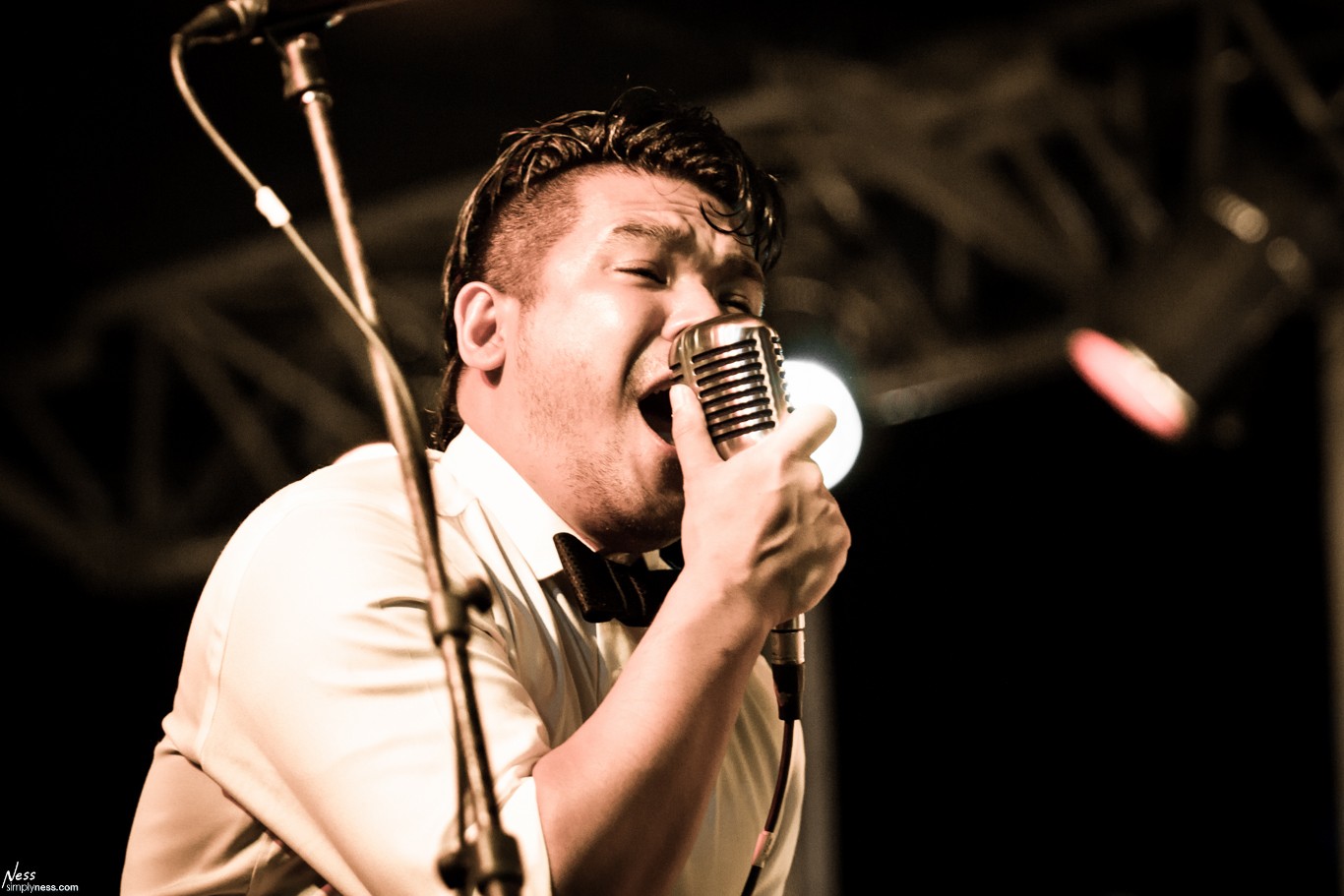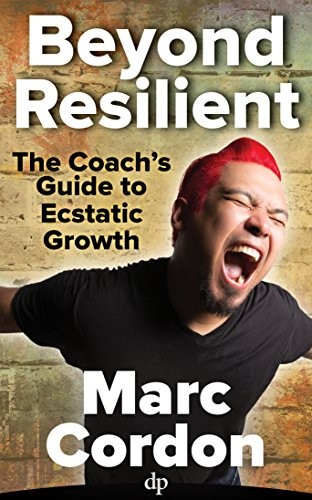Alright – so today we’ve got the honor of introducing you to Marc Cordon. We think you’ll enjoy our conversation, we’ve shared it below.
Marc, thanks for taking the time to share your stories with us today So, let’s start with a hypothetical – what would you change about the educational system?
I loved my time serving in higher education. Certain aspects of it will forever influence my approach to my work. It’s also essential to know the origins of our higher education system. It was influenced by Otto van Bismark’s system to replace old clog makers with younger, more efficient cog makers. This is where the system of choosing a major and more specified graduate school comes from.
There is a need for these systems, but it’s problematic when this form of education is the only game in town. It has caused issues with accessibility, focusing on education, and, at times, doesn’t truly support free thought and expression.
When you’re the only game in town, there isn’t much anyone can do about educational reform.
There’s so much to love about the rise of the content creator economy. It empowers people to become both learners and educators. It caters to curious exploration. It is more prepared for innovations like web3 and the Metaverse and comparatively more accessible.
Traditional colleges and universities will never disappear, but the content creator community offers a great alternative. And that’s a two-way street, as the creator economy can learn so much from higher ed.




Great, appreciate you sharing that with us. Before we ask you to share more of your insights, can you take a moment to introduce yourself and how you got to where you are today to our readers
As the son of Filipino immigrants, I was reticent growing up. I didn’t want to rock the proverbial boat. I did well in school and took piano and violin lessons. But secretly, I didn’t want to be a violinist. I wanted to be a rock star.
So I desperately battled with wanting to stand out as an individual without having to apologize to the collective who loved me.
But on a whim, I auditioned for my high school theater’s rendition of Li’l Abner. I played Abner’s father, Pappy Yokum.
I remember delivering my first line on opening night. It was a line met with a surprisingly hardy laugh from the audience. No amount of rehearsal prepared me for that feeling. It was expansive, expressive, and inspiring. I was connected. I could make a difference. I was alive.
I wanted more of that.
Through the years, I’ve approached dense educational theories through creative writing. I’ve challenged tough topics like oppression with a cheerful, contrarian spirit. I’ve connected to and with others through songwriting.
Today, I am a creative storyteller and positive psychology coach, multi-time TEDx speaker, host of the Golden Mic Podcast, and author of Beyond Resilient: The Coach’s Guide to Ecstatic Growth. I serve conscious entrepreneurs, change agents, and misfit leaders who march to the beat of a different drum. There are a lot of us out there. My coaching empowers people to claim their joy as they make a difference for others.
I love it.
Operationally, I coach and prepare them to get their iconoclastic messages out to the masses through podcasts, TEDx talks, digital academies, PR, and content creation.
My philosophy is simple: Utilize social media for social change and social good.
I combine over 25 years of experience with social justice, leadership training, experience in higher education, and a whole lotta’ unapologetic expression to provide creative ways to get vital messages to as many eyes and ears, and hearts as possible.
In the here and now, people and communities are experiencing an incredible amount of evolutionary friction.
That evolutionary friction allows content creators to step up and make education, healing, and storytelling accessible to everyone. But, of course, it also doesn’t hurt that they can make a living doing it.
They get to disrupt norms. They get to create spaces for controversy with civility. They are providing counternarratives for marginalized communities. They are changing history for the better on TEDx stages, on their podcasts, through their digital academies, and all of it is done…in joy.
Learning and unlearning are both critical parts of growth – can you share a story of a time when you had to unlearn a lesson?
My sister and I watched our parents start from humble beginnings to being able to provide us with a comfortable life. It obviously came with work. I remember being too tired to stay awake on one occasion, hearing dad come to my bed, kissing me on the head, and leaving a fresh pale of Duplo Blocks on my nightstand. My dad was dope.
Yet, somewhere along the way, I picked up the message that to be successful financially, personally, and professionally, I had to put in a Herculian effort. Money was earned, and earning was hard. Anything that came effortlessly, like music or acting, was extracurricular. Furthermore, social justice, education, or anything I was passionate about would never pay well.
Unlearning has been one of the most challenging things I still work on. It’s resulted in being hard on myself or striving to be perfect, but it’s something that I’m committed to unlearning through coaches, colleagues, and self-compassion.
One of the most disruptive messages towards my unlearning is a metaphor that Price Pritchett starts his book “You2: A High-velocity Formula for Multiplying Your Personal Effectiveness in Quantum Leaps.” Price talks about seeing a house fly futilely trying to escape the house by flying against a window. The harder the fly tries, the closer it comes to exhaustion and death. To make things worse, a door is wide open for the fly to escape. If the fly were to try a different approach to escaping, it might find the massive escape next to it.
That’s what my coaches, colleagues, and self-care practice brings me—an opportunity to live with grace, ease, and joy.




How about pivoting – can you share the story of a time you’ve had to pivot?
In my mid-twenties, I had an absolute blast being the singer-songwriter in an indie band that toured and recorded. As enjoyable as that experience was, I was restless about settling for a life that didn’t fully engage my profound reason for being, and I remember asking myself, “There’s got to be more to life than this.”
A few years later, I dedicated over ten years to an administrative higher-education position and a doctoral program in education and counseling. Again, designing retreats focused on social justice, working with students at a critical point in their development, and creating interdisciplinary programs based on positive psychology methods was wildly satisfying as I felt a strong sense of purpose.
But ultimately, I paid the price to fulfill my purpose.
I put relationships and health aside to benefit my students, my alma mater, and my work. However, I soon resent my work and again asked myself, “There’s got to be more to life than this.”
These two experiences provided a fertile ground to pivot into personal and professional work in which I was fully engaged and actualized. It integrated feeling good with functioning well and living the good life.
It became clear when my professional colleague Dr. Andy Kazama shared a quote he lives by.
“A master in the art of living draws no sharp distinction between his work and his play; his labor and his leisure; his mind and his body; his education and his recreation. He hardly knows which is which. He simply pursues his vision of excellence through whatever he is doing and leaves others to determine whether he is working or playing. To himself, he always appears to be doing both.” – Lawrence Pearsall Jacks
That quote aligned my head, my heart, my gut, and my hands, and it was soon after that I created The Joy Revolution, a course that empowers conscious entrepreneurs to create positive social change through joy.
In this course, I could research consciousness with the rigorous scientific methodology of a doctoral candidate. I could teach the classes with the unbridled energy of a rockstar.
I felt whole – integrated emotionally, interpersonally, intellectually, and spiritually.
Soon after, I shared the message of a joy revolution on podcasts, television, radio, TEDx stages, and my book “Beyond Resilient: The Coach’s Guide to Ecstatic Growth.”
It was at this point that pivoting profoundly and powerfully. People were getting in touch with me about how I created my podcast, The Golden Mic Podcast with Marc Cordon, developed my digital academy, and prepared for my TEDx talks.
Soon after, I helped my clients to create their podcasts. When that was established, I coached my clients in TEDx talks. After that, I followed the demand to assist content creators in creating digital courses.
Those were pivots. They weren’t necessarily pivoting away from one responsibility and into another. Instead, these pivots expanded my capacity to deliver transformation to my clients.
I recognize that it may feel like I’ve become even more of a workaholic that pivots into these new responsibility centers. But it’s to the contrary.
Committing to the art of living integrates all of your strengths. It puts you into a flow state. It bends time.
Contact Info:
- Website: https://marccordon.com
- Instagram: https://www.instagram.com/marc.cordon
- Facebook: https://www.facebook.com/marccordoncoaching
- Linkedin: https://www.linkedin.com/in/mcordon/
- Twitter: https://twitter.com/thejoyrev
- Youtube: https://www.youtube.com/@thejoyrev
- Other: https://joyrevolution.com https://expertisereimagined.com
Image Credits
Elizabeth Page Photography


